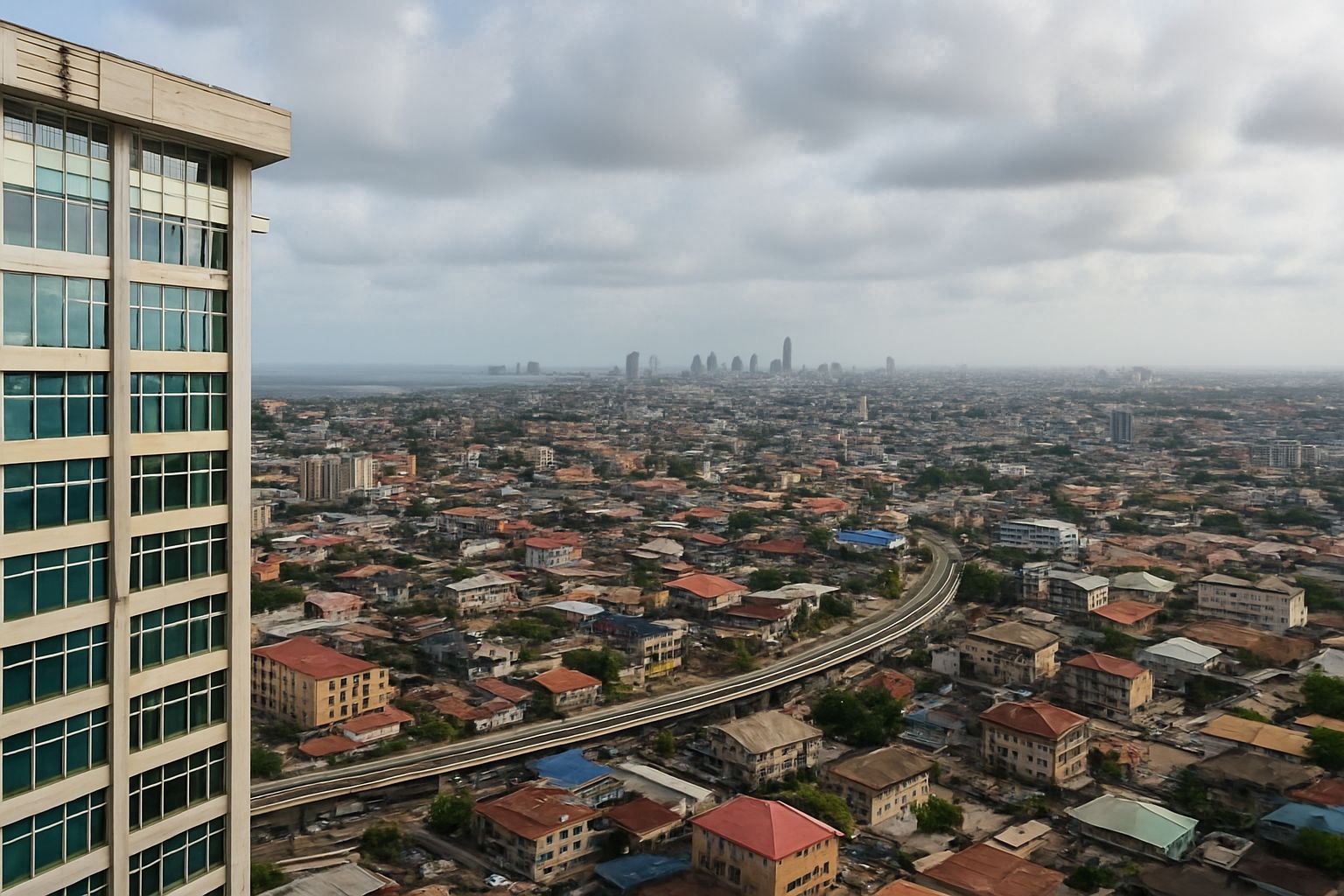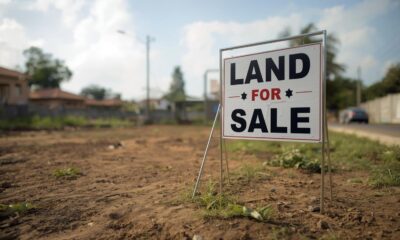Features
Dennis Isong: Why Areas Near Nigeria’s Capital Cities Offer Opportunities for Real Estate

When Nigerians talk about investing in property, the first instinct is to look directly at the capital cities like Abuja, Lagos (though not the official capital, but Nigeria’s economic hub), Port Harcourt, and other state capitals naturally. But in reality, some of the best real estate opportunities are not inside the cities themselves, but in the towns around them. These surrounding towns offer lower entry prices, rapid development, and a lifestyle balance that urban centres often lack.
Let’s explore the best towns for real estate near capital cities in Nigeria, why they matter, and how you can make the most of these investment opportunities. They often hold the real treasures for smart investors who can see a little further.
Why Towns Around Capital Cities Matter
Capital cities are always the most expensive areas when it comes to property. Everyone wants to live or work in Abuja, Port Harcourt, Uyo, or even Akure. But with higher demand comes higher prices, heavy congestion, and a fast-paced lifestyle that not everyone can cope with. This is where nearby towns come in.
These towns are release valves for the pressure in the city. They provide housing options for people who cannot afford the city but still need to work or trade there. For example, many people who work in Abuja live in places like Lugbe, Kubwa, and Karshi. In Lagos, people who cannot afford Lekki or Victoria Island are turning to towns like Sangotedo, Ibeju-Lekki, or Mowe along the Lagos-Ibadan Expressway.
The important thing to understand is this: when a city grows, its neighbours grow too. These neighbouring towns benefit from spillover development—new roads, estates, schools, shopping centres, and even government infrastructure. For investors, this means you can buy at a lower cost and watch your investment rise as the city pushes outward.
Growth Beyond the Capital
Abuja is Nigeria’s seat of power, and naturally, its property market is extremely competitive. But the story of Abuja’s growth cannot be told without mentioning the surrounding towns that have grown alongside it.
Kubwa is perhaps the most popular of these towns. Located along the Abuja-Kaduna Expressway, it has transformed from a quiet settlement into a bustling urban town. The presence of railway connectivity has also boosted its attractiveness. Property here is significantly cheaper than Maitama or Asokoro, yet it provides access to the city centre within a reasonable commute.
There are also towns like Karshi and Kuje, each with unique selling points. Karshi appeals to those looking for quieter, less congested areas, while Kuje’s location near the airport corridor makes it attractive for future growth. The big lesson is that Abuja’s expansion has made these towns part of the city’s real estate heartbeat.
Lagos and Its Endless Expansion
Though Lagos is not the political capital, it is the financial capital of Nigeria and arguably the busiest city in West Africa. With limited land in the city centre, investors are constantly looking outward. This has created a strong property boom in the neighbouring towns.
Take Ibeju-Lekki, for example. It was once dismissed as too far, but has now become one of the hottest property spots. The presence of the Lekki Free Trade Zone, Dangote Refinery, and the new Lekki Deep Sea Port has completely changed the narrative. Today, what used to be bush is now an industrial and residential magnet. Investors who bought land here in the early 2010s at ridiculously low prices are now smiling at the bank.
Another thriving area is Sangotedo, which sits along the Lekki-Epe Expressway. It is home to estates, malls like Novare Mall, and schools, making it one of the most livable suburban areas near Lagos. Then there is Mowe-Ibafo, located along the Lagos-Ibadan Expressway. Although technically in Ogun State, it functions as a residential extension of Lagos for thousands of commuters.
If you cannot afford the heart of Lagos, the best bet is to look at its edges. The towns around Lagos are no longer mere suburbs; they are becoming strong real estate markets in their own right.
Other Capital Cities and Their Neighbouring Towns
In Port Harcourt, the capital of Rivers State, the city itself is highly industrialised and congested. But towns like Oyigbo and Eleme have become popular for residential and commercial investments. They offer more space, cheaper prices, and proximity to the oil-rich economy of the state.
In Ibadan, though it is itself a capital city, areas like Moniya (along the Ibadan railway corridor) are opening up for investors due to improved infrastructure.
Uyo in Akwa Ibom State has neighbouring towns like Itam and Ikot Ekpene that are attracting interest as the state invests in tourism and infrastructure.
Even smaller capitals like Akure in Ondo State or Minna in Niger State have towns around them where land is cheaper and where growth is gradually spreading. For an investor, the principle remains the same: watch the direction of development, and buy land where the city is expanding.
Making the Right Move as an Investor
Now that we have looked at these places, how do you, as an investor, take advantage? The answer is patience, research and strategy.
First, avoid rushing into purchases simply because you hear people shouting about hot areas. Visit the town. Walk its streets. Talk to locals. See whether there are schools, markets, or government projects nearby. These small indicators often predict future growth better than fancy brochures.
Second, focus on towns that already have road connections to the capital city. Accessibility is everything in Nigeria. A piece of land near a good expressway will appreciate faster than one tucked away with no access.
Third, remember that towns grow at different speeds. Some, like Ibeju-Lekki, may explode within a decade. Others may take longer. Patience is part of the game. Always do due diligence. Verify land titles, confirm with the community, and work with trusted realtors. Nothing spoils a good investment like land disputes.























